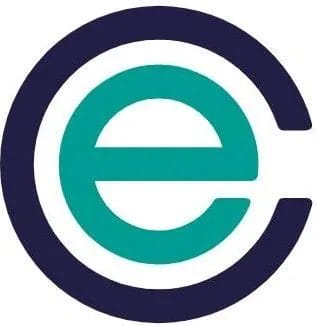If you employ people in the UK, there are a few ways you can reward them in addition to paying wages or a salary. One of the most flexible options is to offer benefits in kind (BIKs).
This guide aims to clarify what BIKs are, their purpose, how they are taxed, and the reporting requirements.
What is a benefit in kind?
A benefit in kind is a non-cash benefit provided to employees that has monetary value. These perks are offered in addition to, or in place of, traditional salary payments.
Examples of benefits in kind
The most common examples of a taxable BIKs include the following:
- Private healthcare
- Travel expenses
- Childcare vouchers
- Company cars
- Gym membership
- Cycle to work schemes
- Accommodation expenses
What is the purpose of offering benefits in kind?
In simple terms, you’re offering your employees valuable perks in addition to their salary.
There are several reasons why you might choose to include certain BIKs in your overall compensation strategy, such as:
- Attraction and retention: competitive benefits can attract top talent and help retain existing employees.
- Employee satisfaction: perks can enhance job satisfaction and morale.
- Tax efficiency: some BIKs can be more tax-efficient than equivalent salary increases.
- Employee wellbeing: benefits like flexible working arrangements or organised yoga classes can improve employees’ work-life balance, contributing to their overall well-being.
Paying Class 1a NICs on your benefits in kind
As an employer, you are responsible for paying Class 1A National Insurance Contributions (NICs) on most benefits you provide to your employees.
These contributions are covered by you and are not deducted from your employees’ salaries.
You must pay Class 1A NICs for:
- Directors and certain senior employees.
- Regular employees.
- Family members or household members of the above, who also receive benefits.
And certain conditions must be met for Class 1A NICs to apply:
- The benefit must not already incur a Class 1 NICs liability.
- The benefit must be related to employment.
- The benefit must be subject to Income Tax.
It’s also worth noting that there is an exemption when it comes to “smaller” benefits (costing £50 or less) for things like taking an employee out to celebrate their birthday.
What benefits are subject to Class 1A NICs?
Common taxable benefits that attract Class 1A National Insurance include:
- Private medical insurance.
- Living accommodation.
- Company cars.
- Termination awards exceeding the £30,000 threshold that have not already been subject to Class 1 NICs deductions.
- Beneficial loans.
When don’t you have to pay Class 1A NICs?
You won’t have to pay Class 1A NICs if:
- Your employee receives a non-taxable benefit in kind.
- The beneficiary does not meet the criteria for “employed earner”.
- The benefit is included in a PAYE settlement agreement.
How to report benefits in kind
First, let’s take a look at P11D and P11D(b) forms. We’ll briefly go over what they are, why you need them and what’s their main difference.
What’s a P11D?
A P11D form is used to report BIKs (such as company cars or health insurance) and expenses provided to your employees on top of their regular wages.
P11Ds are essential as they ensure these benefits are properly recorded and taxed, fulfilling legal obligations and ensuring fair tax contributions.
What’s a P11D(b)?
A P11D(b) form is a declaration that specifies the total Class 1A National Insurance contributions owed on all benefits you provide to your employees.
What’s the difference between a P11D and a P11D(b)?
While both forms involve reporting benefits and expenses, the P11D focuses on detailing individual benefits provided to your employees, while the P11D(b) declares your overall liability for National Insurance Contributions (NICs) on those benefits.
To ensure compliance with HMRC, you must report benefits in kind annually. Here’s your step-by-step guide outlining the process:
When submitting P11Ds:
- Identify the benefits: determine all BIKs provided to employees during the tax year.
- Calculate the value: assess the taxable value of each BIK.
- Complete the P11D Forms: Fill out a P11D form for each employee receiving BIKs, detailing each benefit and its value.
- Distribute P11Ds: provide copies to employees by 6 July following the end of the tax year.
When submitting P11D(b)s:
- Complete the P11D(b) form: this form summarises the total value of all BIKs provided to employees and calculates the Class 1A NICs due.
- Submit to HMRC: ensure the P11D(b) is submitted to HMRC by 6 July following the end of the tax year.
- Pay Class 1A NICs: payment for the Class 1A NICs must be made by 22 July (19 July if paying by cheque).
Payrolling benefits in kind: current status and April 2026 changes
As it stands, when it comes to benefits in kind, you have two choices:
- You can stick with the traditional approach of submitting P11D forms to report employee benefits for tax purposes (if they aren’t processed via payroll).
- You can opt to register for payrolling benefits, which means you process employee benefits as part of your usual payroll processing, allowing for the real-time taxation of benefits through PAYE.
What’s going to change from April 2026?
Starting from April 2026, all BIKs that you provide (except for loans and living accommodation) will have to be reported and taxed through payroll. You must ensure that your current payroll process will be able to handle this new development and take actions to either upgrade or replace your software if necessary.
Are P11Ds giving you a headache?
If you’re looking to quickly and efficiently manage all your employees’ taxable benefits book a personalised demo today with our sister company Cintra.

